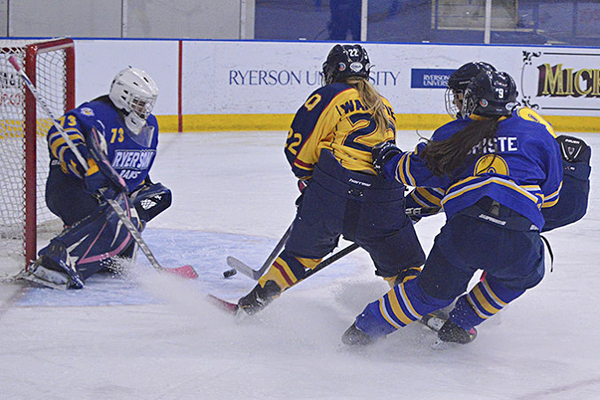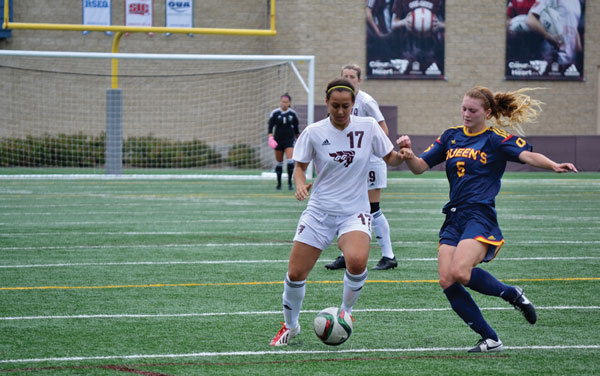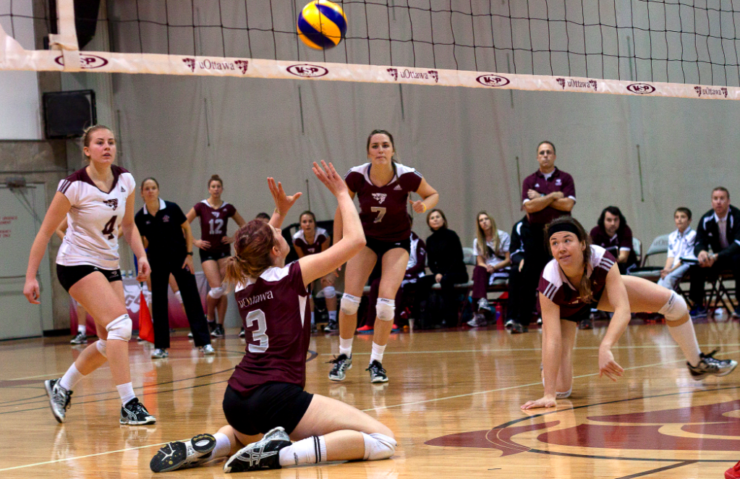CIS ramps up scholarships for female post-secondary athletes
Photo by Olivia McLeod/The EyeopenerTORONTO (CUP)—Canadian Interuniversity Sport (CIS) will allow post-secondary schools to give female hockey players full-ride scholarships in an effort to keep more talent at home.
The Women’s High Performance Hockey pilot program will be in place for five years, and will allow CIS to collect data on how effective scholarships are in recruiting athletes in Canada.
“Is the scholarship the difference or is it something else?” CIS CEO Pierre Lafontaine told the Canadian Press. “We’ll have a better understanding of all of that within the pilot.”
Click here for the original article from the Eyeopener.
Lafontaine said there are almost 4,000 Canadian athletes in the NCAA, including 400 women’s hockey players. Of the 22 players on the under-22 national women’s hockey team, 20 play in the NCAA.
In addition to tuition, teams will also be able to cover living expenses for players under a cap. That cap is 70 per cent of the total tuition and living expenses for 14 players, so the number will be different for each school.
Stephanie White, Ryerson University’s associate director of athletics and founding coach of the women’s hockey team, said that while the team will be participating in the program, no players on the current roster will get the scholarship.
“We will only be looking at this type of higher funded scholarship should we identify an athlete that is representative of the talent the pilot is targeting,” White said in an email. “(These) players are typically national or provincial level under-18 athletes.”
White said she thinks the scholarships will help keep some players in Canada but added that programs need more than just money to lure players.
“Canadian schools must offer the full package, not just scholarships,” she said. “Resources such as full-time coaches, equipment managers, quality of (facilities) … will influence athletes’ decisions to stay in Canada or go to a Division 1 school.”
Once the program is complete, White said the collected data would be studied to see if the initiative is worth continuing. White did not specify what this data included, and Lafontaine did not respond to requests for comment.
In a similar move last year, CIS changed the rules for players wishing to transfer from the NCAA to a Canadian school. Previously, those players had to sit out a year before they could play up north. Now, they do not.





